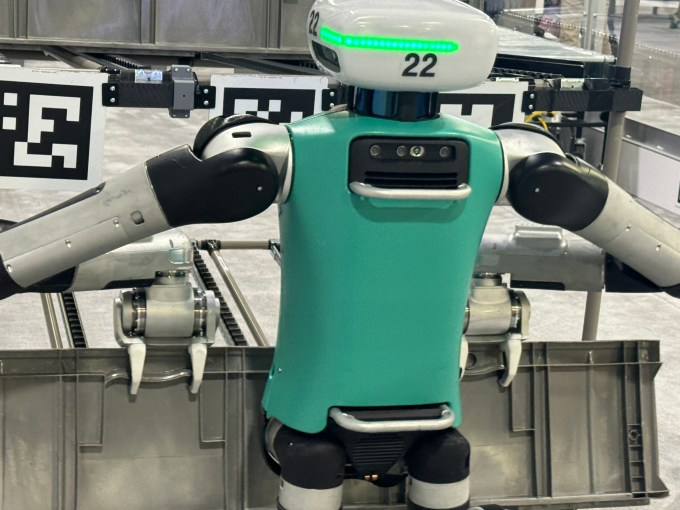Don't miss these Bear Robotics raises $60M, coming to a cafe near you: Using wheeled robots to deliver goods is nothing new. (I found a new drinking buddy in Botlr back in 2014, for example.) But that doesn't mean that there hasn't been any progress in the space. LG's investment into Bear Robotics is a good example of that fact: The startup (valued at $490 million during its last investment) "makes artificial intelligence-powered server robots for restaurants and other venues," TechCrunch's Kate Park reports. Agility Robotics' push to bring robots to the warehouse: Sure, Tesla, 1X, Figure, and Apptronik are all working on bipedal robots, but Agility seems to have stolen a march on its competition. With former Microsoft and Magic Leap bigwig Peggy Johnson on board, the company appears to be moving into a more commercial, less research-focused phase of life. Peak XV plans new, self-backed perpetual fund: PeakXV has been busy since it split off from Sequoia. The venture firm is now planning an evergreen fund backed by its own staffers' capital, called Peak XV Anchor Fund. The firm has more than $9 billion under management, so it's not clear how large the new Anchor Fund will be compared to its more traditional venture funds, but the move is notable in and of itself. TechCrunch broke this story, so expect more details when the company deigns to discuss it publicly. What we learned when U.S. spy chiefs testified: The United States' spy agencies have their eyes on several threat areas, as you'd think. But what do they know? According to an unclassified report, we now know that in the last decade 74 countries purchased "commercial spyware, which governments are increasingly using to target dissidents and journalists;" the U.S. is having a hard time countering ransomware; AI is an issue in influence operations; and buying data online is a good way to get around the need for warrants. That last bit is more than a little bit worrying. Dutch dude enjoys Spanish weather: When he flew into Barcelona, SolarMenta co-founder and CEO Wouter Draijer noticed that there were fewer solar panels atop homes than in his native Holland, despite Spain being one of the sunniest countries in Europe, TechCrunch's Anna Heim reports. So, he founded a company to work on the issue, focused on a subscription-based offering that installs panels without an upfront cost. The company went through Y Combinator and is Leonardo DiCaprio's first Spanish investment. Instant commerce is blowing up in India: Trying to fulfill e-commerce orders in minutes and hours instead of days and weeks is an area of business littered with the corpses of failed companies. While the model has struggled historically, it's thriving in India. Quick commerce, as the business model is often called, grew by 10x from 2021 to 2023, and it has lots of room to grow in the country. Royal AI snap bungle a harbinger: I try to avoid consuming any content related to the British royal family because hereditary monarchy fused to a national religion is a bad idea, but sometimes they wind up in my work life. Such is the case with a wildly weird photo of the Duchess of Cambridge and her kids. Kate Middleton later said that she had edited the photo herself, which explains why it seems so strange. Anyway, all this matters, because, as TechCrunch's Amanda Silberling writes, "as AI-powered image generation becomes mainstream, we're losing our grip on reality." A handy gadget to help you breathe: Moonbird has built a small, handheld gadget that helps its user breathe in a pattern that helps them calm down. Sure, our own Haje Jan Kamps reports, there are a lot of similar apps out there, but the founder of Moonbird argues that if you have to pull out your phone to relax, you're going to do more harm than good. |





No comments:
Post a Comment
Note: Only a member of this blog may post a comment.